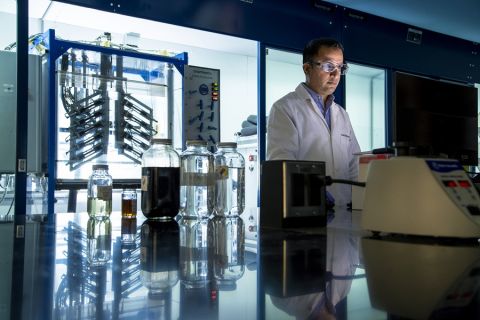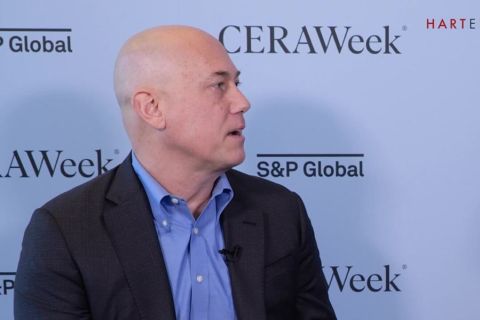Denbury Inc. announced a CO₂ transport and storage agreement with Mitsubishi Corp. on Sept. 21, marking the first CCUS deal for the Plano, Texas-based independent energy company.
“We are excited to deliver the first of what we believe will be many CO₂ transport and storage deals with industrial customers along our extensive infrastructure footprint,” Chris Kendall, president and CEO of Denbury, commented in the company release.
In the release, Denbury said it executed a term sheet with Mitsubishi through its subsidiary, Denbury Carbon Solutions LLC, for the transport and storage of CO₂ captured from Mitsubishi’s proposed ammonia project on the U.S. Gulf Coast.
Denbury launched its Carbon Solutions business in January 2020, building on decades of experience utilizing CO₂ in its EOR operations.
For over two decades, Denbury has maintained a unique strategic focus on utilizing CO₂ in its EOR operations and since 2013 has been active in carbon capture, use and storage (CCUS) through the injection of captured industrial-sourced CO₂ in the Gulf Coast and Rocky Mountain regions where its operations are focused.
Per the term sheet, Denbury will transport and sequester all of the CO₂ captured at the Mitsubishi ammonia facilities, which are planned for construction in close proximity to Denbury’s CO₂ Green Pipeline system. Additionally, the deal includes the option for Denbury to utilize the captured CO₂ in its EOR operations or for storage in other geologic sequestration sites.
Mitsubishi aims to introduce its fuel ammonia to the Japanese market, with production commencing from its Gulf Coast facility in the latter half of the decade, according to the release. The project is targeted to produce an ammonia volume of around 1 million metric tons per annum (mmtpa) with associated CO₂ emissions of around 1.8 mmtpa and the potential for additional ammonia projects to follow.
The agreement between Denbury and Mitsubishi has an initial period of 20 years, with the ability to extend further. Total volumes under the arrangement could surpass 50 million metric tons of CO₂, the release said.
“Today’s announcement with Mitsubishi highlights Denbury’s position as the preferred business partner for transporting and storing captured industrial CO₂ emissions,” Kendall said in the release adding that he looks forward to working with Mitsubishi on this project, which represents a “significant step in the creation of substantial value through our Carbon Solutions business.”
Denbury currently injects over three million tons of captured industrial-sourced CO₂ annually, according to the release. The company’s objective is to fully offset its Scope 1, 2 and 3 CO₂ emissions within this decade, primarily through increasing the amount of captured industrial-sourced CO₂ used in its operations.
Recommended Reading
Defeating the ‘Four Horsemen’ of Flow Assurance
2024-04-18 - Service companies combine processes and techniques to mitigate the impact of paraffin, asphaltenes, hydrates and scale on production—and keep the cash flowing.
Tech Trends: AI Increasing Data Center Demand for Energy
2024-04-16 - In this month’s Tech Trends, new technologies equipped with artificial intelligence take the forefront, as they assist with safety and seismic fault detection. Also, independent contractor Stena Drilling begins upgrades for their Evolution drillship.
AVEVA: Immersive Tech, Augmented Reality and What’s New in the Cloud
2024-04-15 - Rob McGreevy, AVEVA’s chief product officer, talks about technology advancements that give employees on the job training without any of the risks.
Lift-off: How AI is Boosting Field and Employee Productivity
2024-04-12 - From data extraction to well optimization, the oil and gas industry embraces AI.
AI Poised to Break Out of its Oilfield Niche
2024-04-11 - At the AI in Oil & Gas Conference in Houston, experts talked up the benefits artificial intelligence can provide to the downstream, midstream and upstream sectors, while assuring the audience humans will still run the show.





